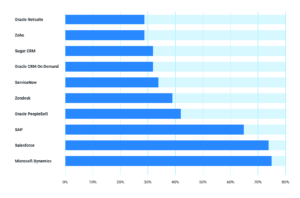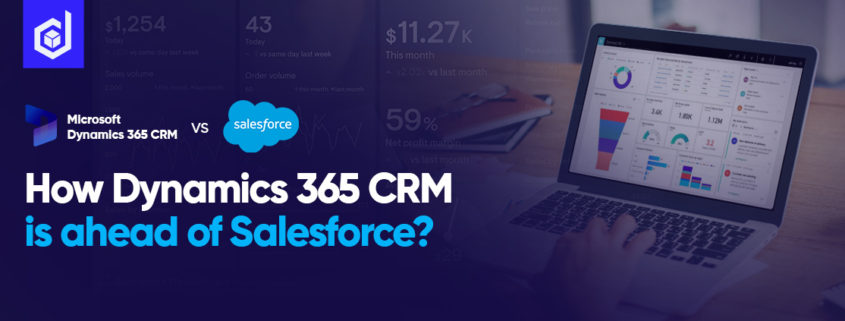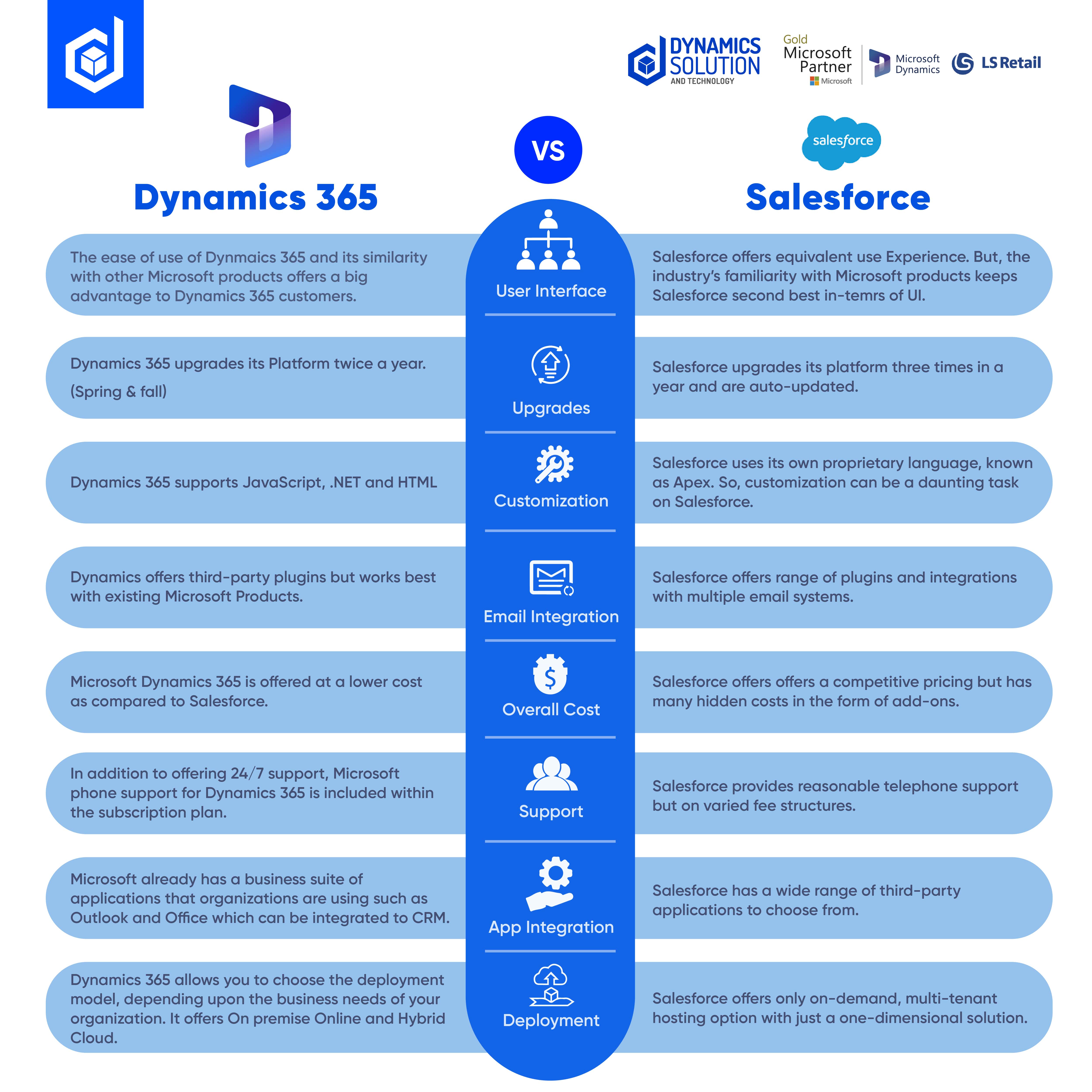Businesses all throughout the globe aspire to provide value and a strong commitment to improving people’s lives and, eventually, making the world a better place to live. Some businesses are so promising that they grow at a breakneck speed. In that case, companies search for a simplified solution, such as Customer Relationship Management (CRM), which not only improves their operability but also overall performance and makes them more people- or consumer-oriented.
However, various organizations from different sectors have varied requirements, and deciding on the best one (CRM solution) for your business can become a tricky judgment, given the market’s abundance of possibilities.
Anticipating the impact that any proficient CRM solution can have on your organization, selecting the right or suitable CRM provider and implementation partner becomes critical. While making your decision, it is critical to understand the scope of the solution and its products with conveniences, such as ERP vs. accounting software and ERP vs. CRM software.
Transitioning from conventional software to CRM is a consequential course of action. This adaptation or implementation of tools will revolutionize the way you operate your business, but you will also increase your business intelligence.
To begin, this article compares Microsoft Dynamics 365 CRM with Salesforce. We shall evaluate the advantages and disadvantages of these two massive service providers. One of them is Salesforce Solution which is a sales-focused CRM solution, whereas Microsoft’s Dynamics 365 CRM focuses on holistic management efficiency and procedural efficiency enhancement. Diverse criteria are necessary for every firm and sector in either circumstance.
Reviewing the Microsoft Dynamics 365 CRM and Salesforce
Choosing between D365 CRM and Salesforce might need a great deal of thought as well as a personal choice. Also, what are the business prerequisites for inclusion? B2B and B2C companies have different selection procedures and requirements. Microsoft Dynamics 365 and Salesforce are both CRM products/ solutions that accommodate large teams, therefore, provide comparably essential and outstanding capabilities.
At a Peek: Salesforce vs. Microsoft Dynamics 365
Salesforce offers a slick, modern interface, whereas Microsoft is proven, significantly streamlined, and reliable. Both offer a set of their own capabilities and use cases, but Microsoft Dynamics 365 will most likely come down to the exact use case of large and swiftly expanding enterprises. Also, Dynamics 365 CRM has comprehensive features meant to address any situation.
What Salesforce can offer to Your Business
Salesforce is CRM software geared at medium to large-sized sales enterprises. Although Salesforce has capabilities such as contract and order management, the best feature is its cross-sell abilities and a variety of sales automation apps available through the AppExchange system.
In a nutshell, Salesforce concentrates on sales and sales-related responsibilities like increasing the sales volume and distribution of the company’s products rather than its overall operations.
The vitality Microsoft Dynamics 365 Offers
For large-sized enterprises, Dynamics 365 CRM is a supreme option as it caters to the salespeople at a mass scale as well as the resources from multiple departments, that too in a very streamlined manner.
Dynamics 365 deals with both sales and overall operational management programmability.
Furthermore, as a Microsoft product, this CRM integrates well with M365 solutions such as Word, Excel, etc. with the option for various operations. So, if you want to manage all your business functions in one place using Office tools as a companion, Microsoft Dynamics is best for you.
Stacked Up Comparison Chart for D365 CRM and Salesforce
![]()
![]()
Where Dynamics 365 Takes a Lead over Salesforce
- AI-driven insights (Without having to pay an additional price)
- Customer Voice feature
- Native integration with LinkedIn via LinkedIn Sales Navigator
With regard to fulfilling the demands of Sales and Marketing teams, Dynamics 365 outperforms Salesforce, despite being the market leader in the CRM area.
Key Benefits of Microsoft Dynamics 365 CRM
- Uncomplicated and comprehensive connectivity with Microsoft apps
- Full-featured mobile platform
- User-friendly User Interface for non-technical employees
Salesforce and Microsoft Dynamics 365 share nearly similar features and are each other’s key competitors in the CRM race. The size of your company and the precise capabilities you want will conceivably determine whether Salesforce or Microsoft Dynamics 365 is better suited to your business needs.
First, the unique selling point here is that Microsoft Dynamics 365 supports on-premise server deployment. If keeping your CRM software on-site is preferred or essential, Microsoft Dynamics 365 CRM is your best and only alternative because Salesforce is entirely cloud-based.
Salesforce provides lower-cost starting plans, but as you expand up, Salesforce will likely cost more than Microsoft Dynamics 365, which gives savings as you add additional software.
In addition to that, depending on the use cases adopted, Microsoft Dynamics 365 is likely to be more cost-effective for medium to big enterprises. Microsoft Dynamics 365 CRM also wholly integrates with the Microsoft Office suite, which includes OneDrive, Excel, Outlook, and much more, so if your firm is already highly reliant on Microsoft Office, Dynamics 365 may be a better alternative.
If you need to obtain a full comparison of prices and plans, Forbes Advisor has provided a detailed explanation to help you out.
Microsoft Dynamics vs. Salesforce Market Share
So far, the leading CRM providers in the industry are Salesforce and Microsoft Dynamics 365. Both of these systems are in the top 10 CRM options available. Microsoft Dynamics 365 has come a long way and revolutionizing global business methods and striving to make this world a better place to live.

If you have a large enterprise and wish to expand more effectively and simplify existing operations in an unrivaled streamlined manner, Microsoft Dynamics 365 Customer Relationship Management is the solution for you!
While there are numerous similarities between Dynamics 365 and Salesforce, it all comes down to what each platform offers its clients based on their company size and requirements.
Though they each play to their strengths, Dynamics 365 provides both on-premise and cloud deployment options for enterprises that need to trace their roots back on-premise before fully migrating to the cloud. Salesforce, on the other hand, does not offer on-premise resolve to enterprises or organizations but it is entirely a cloud-only solution.
By the time you’ve decided on which CRM to use, companies need to be aware that simply acquiring the CRM will not help you improve your business.
To get your sales, marketing, and customer support teams up and functioning in an integrated convenient manner, you must methodically integrate the CRM into your business process by a certified expert and that is where Dynamics Solution and Technology can help you!
Regardless, the final decision is yours. Your “winner” should be determined by what makes your company advance at a proficient pace. Once you have a firm grasp of your company’s business infrastructure, the facilitations that your sales teams rely on, your budget, and other fundamental needs, the cloud-based customer relationship management (CRM) side will fall into place.
Dynamics Solution and Technology experts keep your company’s objectives in mind and pay close attention to your industry sector with all minute details (targeted consumers, challenges, etc.).
Dynamics Solution and Technology, being a Microsoft Gold Partner, carries a successful track record of implementing not only the Microsoft Dynamics 365 CRM but also, Business Central and ERP in the MENA and Gulf regions, providing a one-stop solution for your digital transformation needs. So, what are you waiting for?








